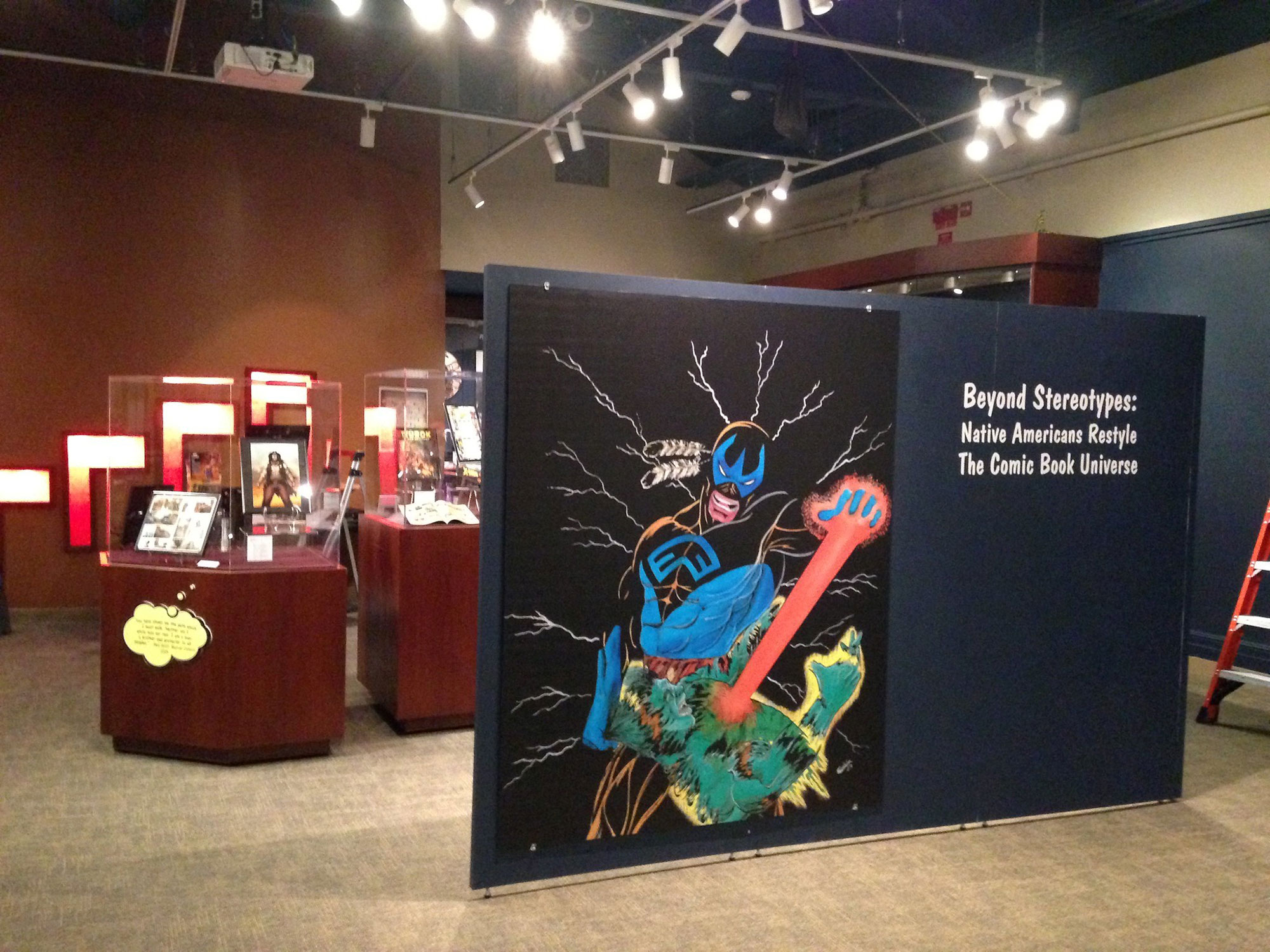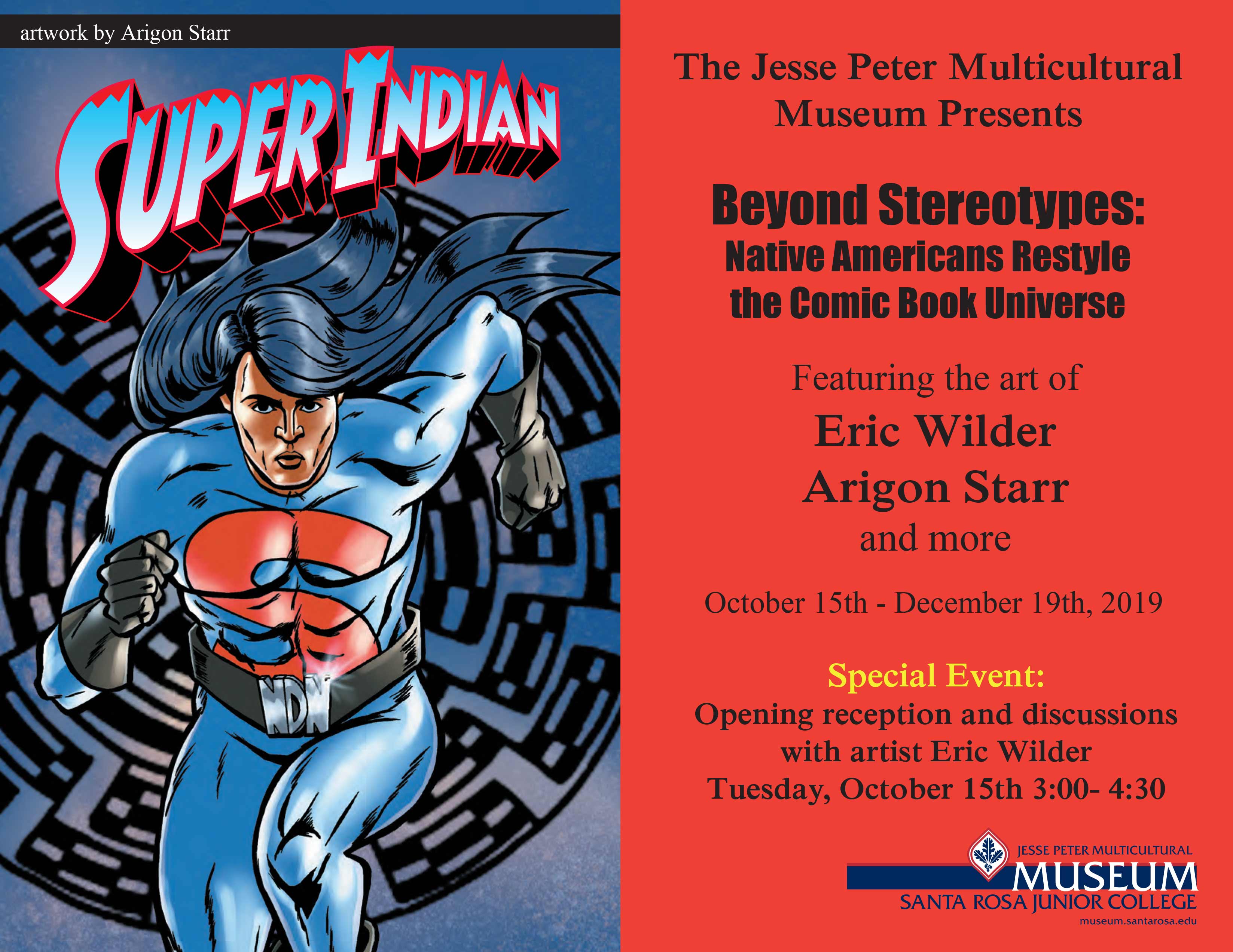
Click Here to Read Curator's Statement
Curator's Statement
Beyond Stereotypes: Native Americans Rewrite the Comic Book Universe
Holy Tribal Superheroes, Batman! SRJC's Jesse Peter Multicultural Museum presents an exhibit highlighting comic books written by Native Americans.
Artists Jon Proudstar and Ryan Huna Smith co-created Tribal Force in the late 1990s. Tribal Force, featuring the first band of superheroes made up entirely of Native Americans, reveals dimensional characters with a backstory, and with flaws: “..Nita, a Navajo child-molestation survivor, transforms into the goddess Earth. Meanwhile, Gabriel Medicine Dog, a Hunkpapa Sioux left mute by fetal alcohol syndrome, metamorphoses into the fearsome Little Big Horn following a fatal bar fight. Together, Nita and Gabriel seek out other Native supernaturals, fighting high-tech government entities and supervillains along the way.” (Bryn Bailer, interview with Jon Proudstar, High Country News February 17th, 2014; accessed here)
Since the introduction of Tribal Force, many more Native American artists have begun to gain notoriety with the creation of Native Realities; an independent comic publishing company founded in 2012 by Lee Francis IV. Francis also owns Red Planet Books and Comics in Albuquerque, NM; the first and only comic book shop in the United States dedicated to Native Comic Books.
In researching Native American characters in mainstream comics, we were pleasantly surprised to find more Indigenous characters overall than we expected. Not surprising, however, are the stereotypical ways that these characters have typically been depicted: almost always wearing obligatory feathers and buckskin and usually imbued with mystical “primal” powers like the ability to communicate with animals or with super tracking skills. The worst stereotypes have Native American characters as the sidekick to the white hero, with limited speaking ability and no discernible personality.
In this exhibit, we feature original artwork by Eric Wilder, local Kashya Pomo artist, and Arigon Starr, Kickapoo actor, singer, and author of the tongue-in-cheek graphic novel Super Indian; along with comics from this decade and the past that portray Native American characters.
We invite you to view the art and comic books displayed here through a critical lens. How different are comic books written by Native American people as compared to ones written by non-Indigenous people? Is the vocabulary demeaning? Do the Indian characters talk like Tonto? Are tribal differences flattened into a Pan-Indian giant tribe in which they all look and behave in a certain way? Are Native Americans portrayed as an extinct species? Is Indian humanness recognized? Is there full character development, with unique personality traits, or are they just a flat stereotype?
Comic books offer a glimpse of how culture shifts happen from decade to decade. With the creative infusion of Indigenous artists and writers in the Comic world, it is our hope that multi-faceted Indigenous characters will inspire young people to find their own voices and continue telling their own stories in a way that is both relatable and new.
Rachel Minor | Museum Supervisor/Curator
Comic books offer a glimpse of how culture shifts happen from decade to decade. With the creative infusion of Indigenous artists and writers in the Comic world, it is our hope that multi-faceted Indigenous characters will inspire young people to find their own voices and continue telling their own stories in a way that is both relatable and new.
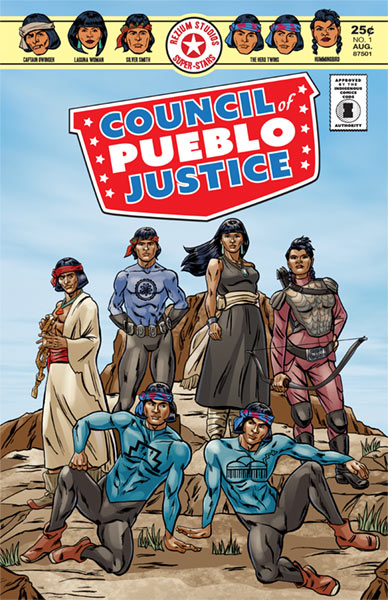
Council of Pueblo Justice Poster by Arigon Starr
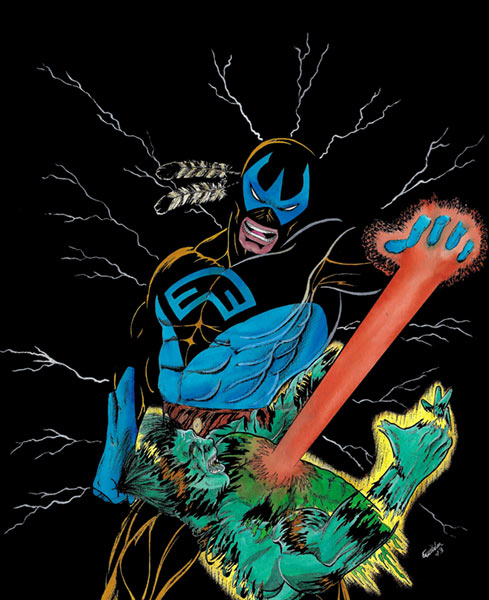
Rockman - drawn by Eric Wilder 1994
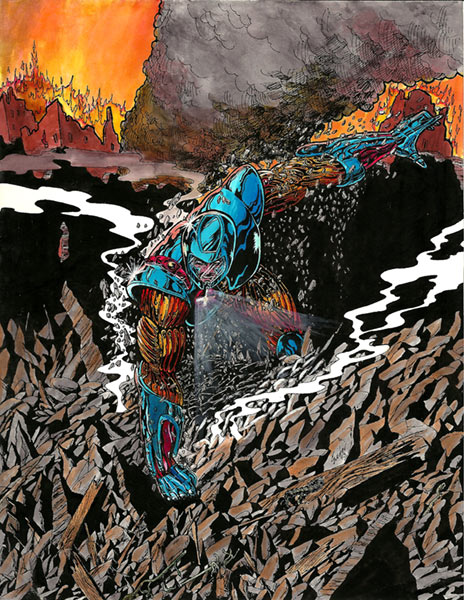
Man-O-War Character drawn by Eric Wilder
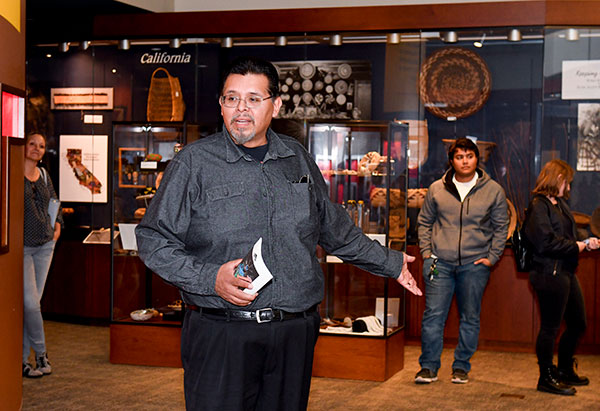
Eric Wilder speaking at opening reception
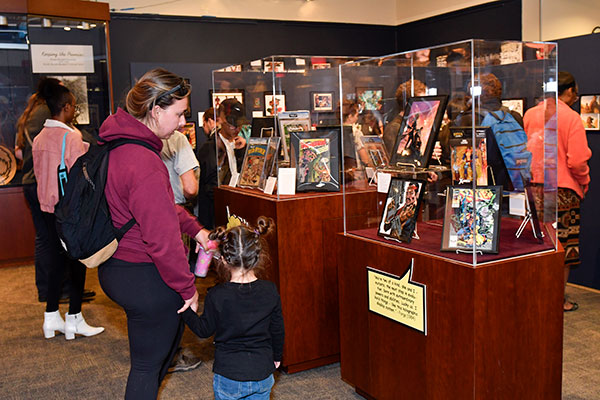
Visitors at Opening Reception
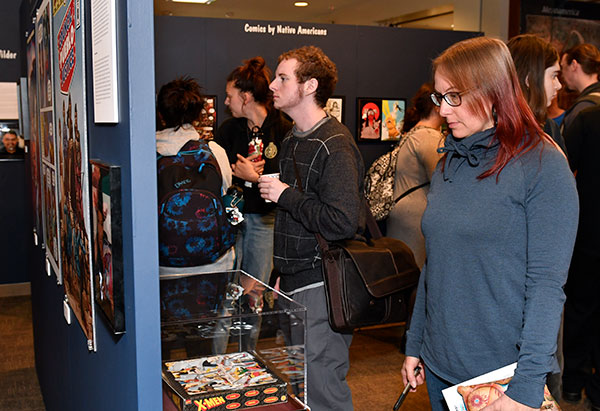
Visitors at Opening Reception
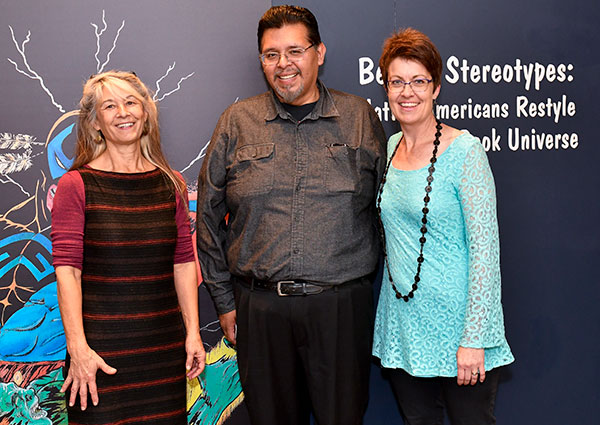
Theresa Molino-Director, Eric Wilder- Featured Artist, Rachel Minor- Curator
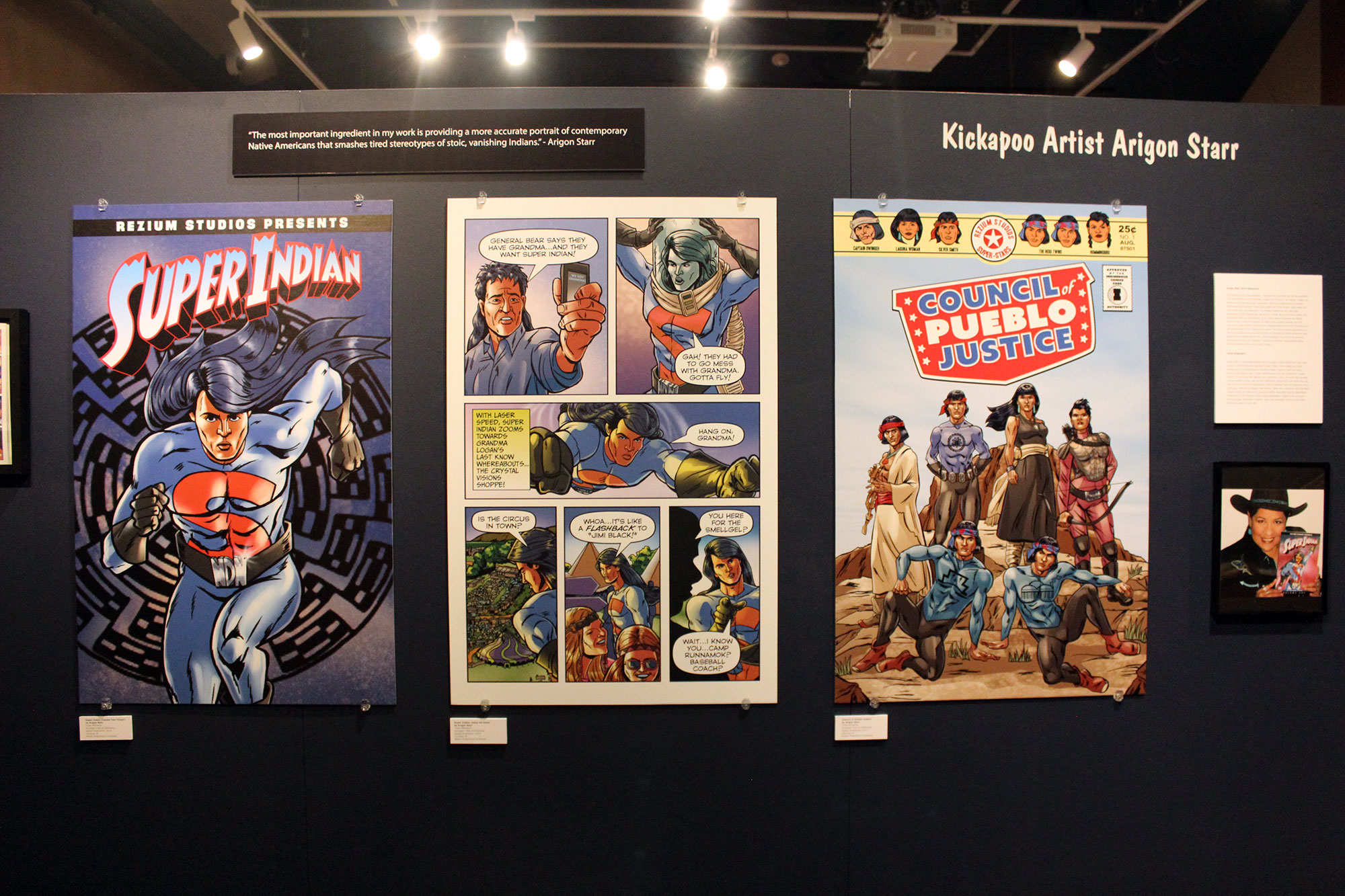
Arigon Starr exhibit wall
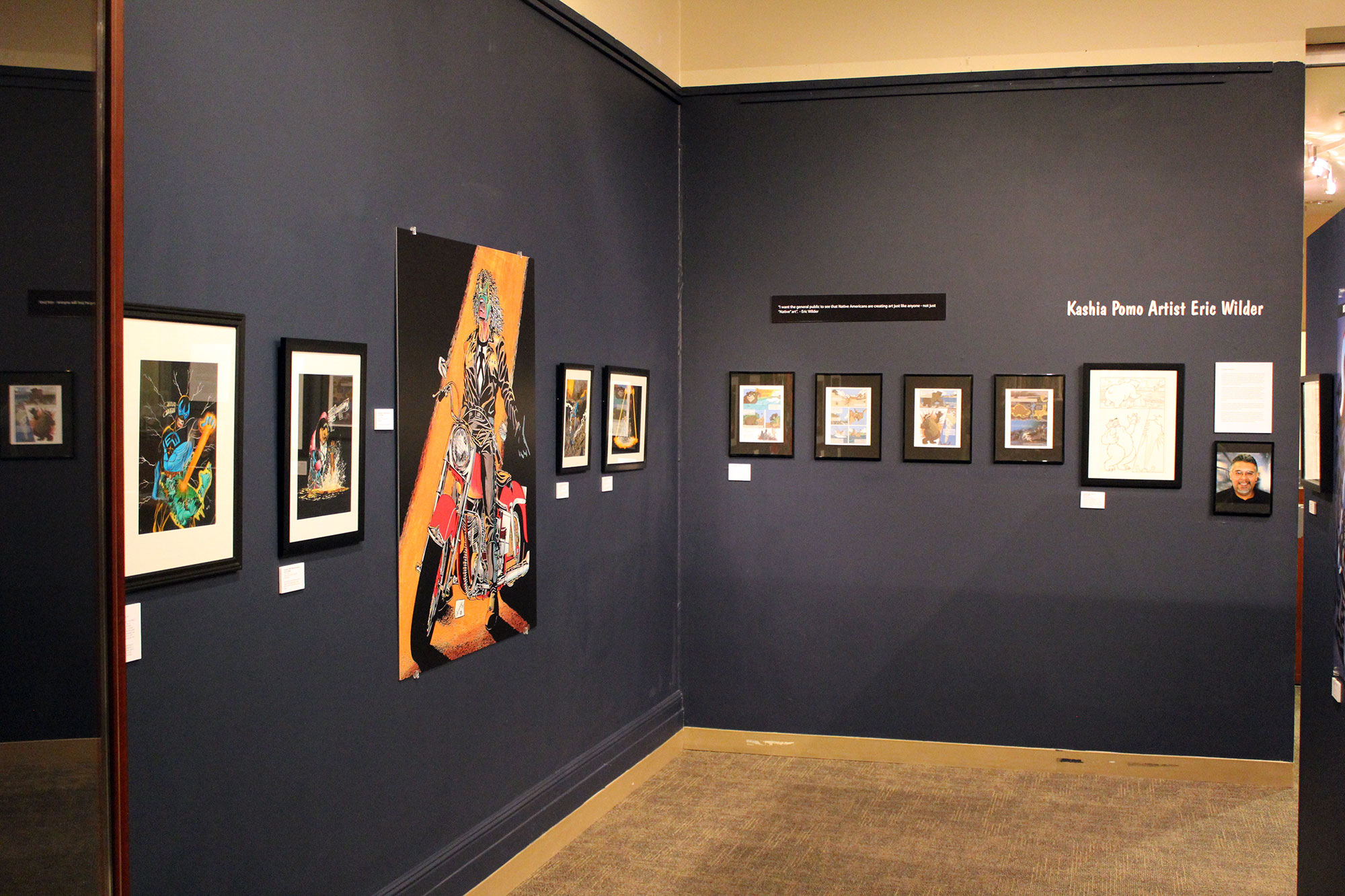
Eric Wilder exhibit wall
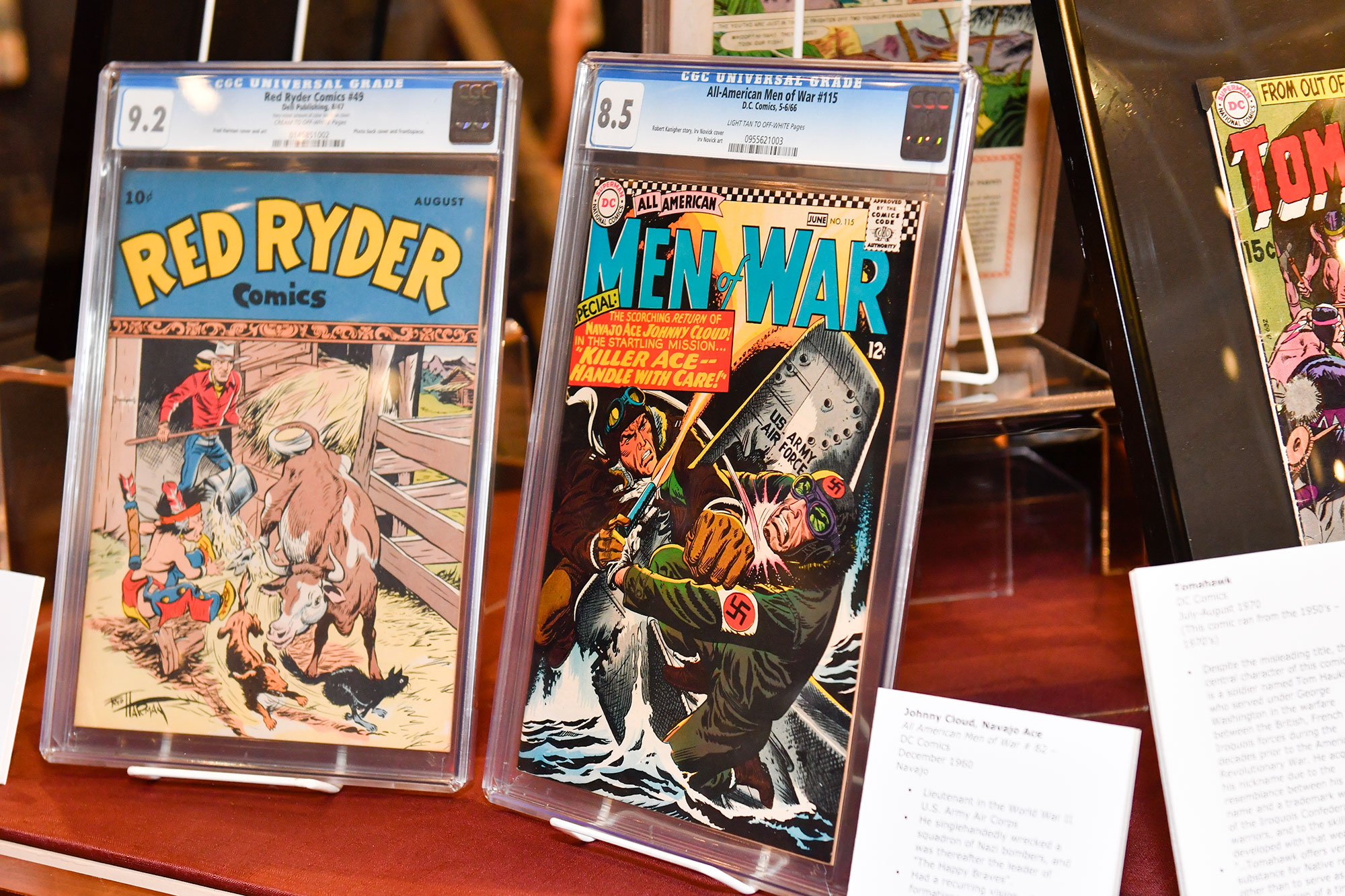
Some of the comic books on exhibit
